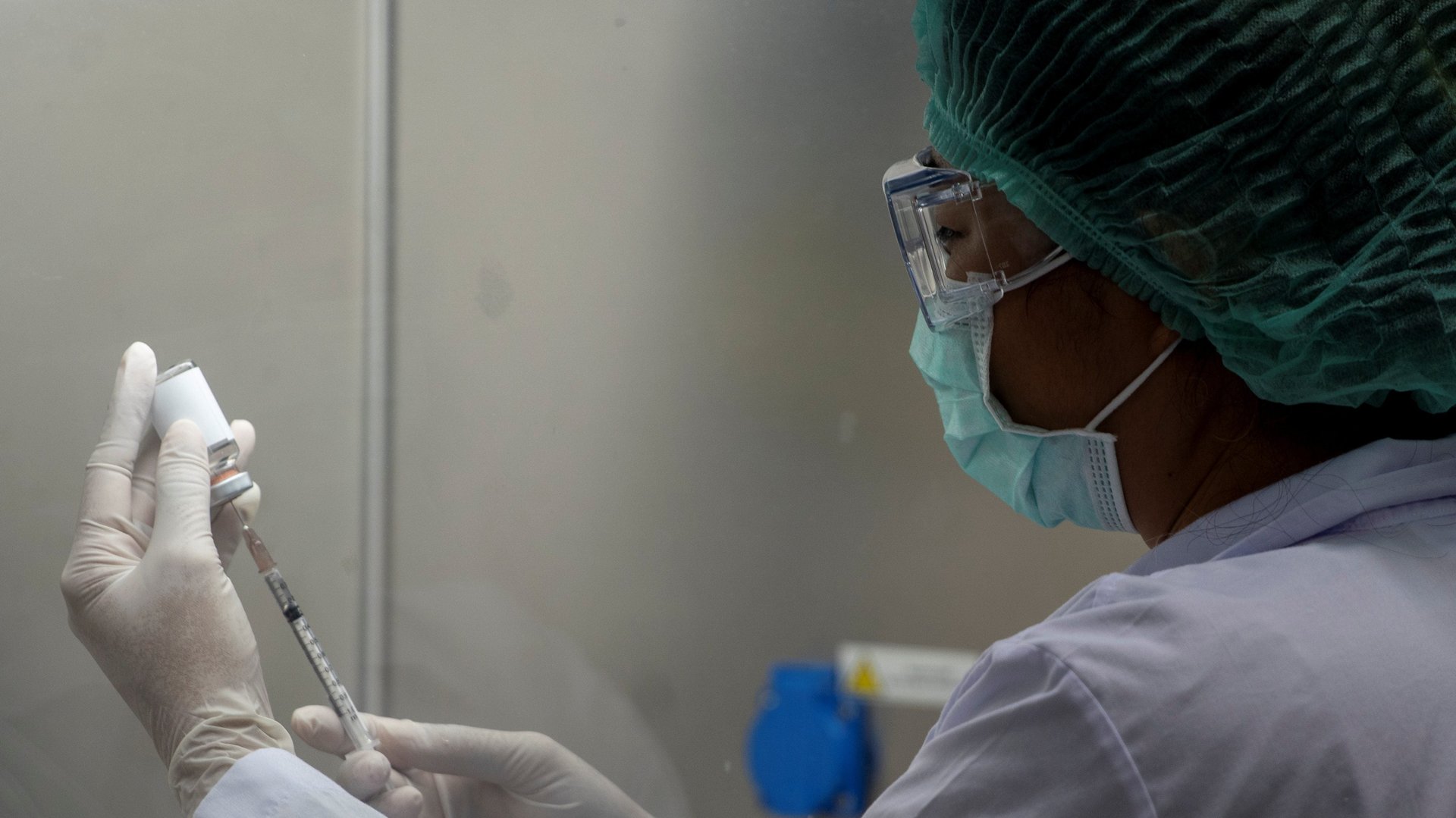Why mRNA vaccines won’t change your genetic material
Of all the Covid-19 vaccine candidates making their way through the regulatory pipeline, the two from Pfizer/BioNTech and Moderna are some of the most exciting. In addition to having reported efficacies of 90% of more, these vaccines are the first of their kind. Rather than using a killed or weakened viruses or snippets of viral proteins, these vaccines use messenger RNA, or mRNA for short.


Of all the Covid-19 vaccine candidates making their way through the regulatory pipeline, the two from Pfizer/BioNTech and Moderna are some of the most exciting. In addition to having reported efficacies of 90% of more, these vaccines are the first of their kind. Rather than using a killed or weakened viruses or snippets of viral proteins, these vaccines use messenger RNA, or mRNA for short.
Vaccines based on genetic material may give you pause. But mRNA vaccines, which have been in the works for nearly three decades, never touch our DNA, and as a result can’t interfere with human genes. Instead, they just borrow some of our cellular tools before harmlessly breaking down. “Injecting RNA into a person doesn’t do anything to the DNA of a human cell,” Jeffrey Almond, a microbiologist at the University of Oxford, told the BBC.
It’s true that our DNA is a precious resource. Every single one of our cells carries the full instruction set for the proteins that keep our body running, and changing that code can sometimes lead to disease. But that’s exactly why it’s so well-protected.
Our DNA never leaves the nucleus, a protective, membrane-covered bubble within our cells. To make proteins from that code, an enzyme called RNA polymerase unzips sections of our double-stranded DNA and makes a copy of single-stranded mRNA. mRNA is like the sticky note you use to jot down a recipe from a friend’s cookbook—her cookbook belongs in her house, but you could copy its instructions to help make your dinner.
Acting like the good messenger it is, this mRNA makes its way out of the nucleus into the rest of the cell, where it runs into ribosomes. These are the cell’s protein factories. Ribosomes read off the recipe carried by the mRNA, using the cell’s tools to assemble a string of amino acids that ultimately become a protein.
The mRNA vaccines for Covid-19 take advantage of this built-in cellular system. The shot delivers a microscopic, fatty package into our cells, carrying a specially-designed mRNA sequence. When that mRNA meets up with our ribosomes, they use it to cook up a protein that mimics the SARS-CoV-2 virus—specifically, part of its spike protein coating. Our ribosome chefs interpret this new mRNA as if it were a recipe generated from our own DNA, but the DNA inside the cell’s nucleus remains untouched.
When other entities in the cell notice the SARS-CoV-2 spike protein floating around, they see it as a threat. The protein alone can’t hurt us; it’s not a part of a replicating and exploding virus that destroys our cells to the point of getting sick. But it’s still enough to trick immune cells into thinking they need to build up antibody protection against it—which is how people are protected from developing Covid-19 once they’re vaccinated.
mRNA vaccines are exciting because they don’t introduce any truly foreign viral material; they’re using tweaked versions of ingredients that are part of an everyday cellular process. Scientists have long suspected this would mean they’d produce fewer side effects than other vaccine platforms. Data from Pfizer/BioNTech and Moderna suggests that while most people do have side effects, ranging from fatigue to mild fevers, they are not severe enough to stop the vaccine from making it to the public.
These kinds of vaccines also break down in the body in a matter of hours, which may decrease the likelihood of long-term side effects. (One of the reasons mRNA vaccines have taken decades to develop is because scientists had to figure out how to get them to stay intact long enough in cells to actually be used.)
In theory, mRNA vaccines also hold the potential for making other vaccines at lightning speed. As soon as scientists can genetically sequence new pathogens, they can start determining the mRNA required to build key proteins within them. This means that future vaccines could be produced on the same rapid timeline as Pfizer/BioNTech and Moderna’s Covid-19 vaccines.